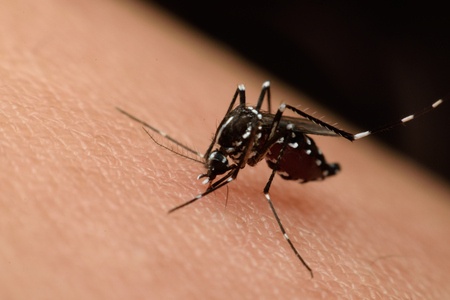In May 2015, the Pan American Health Organization (PAHO) issued an alert regarding the first confirmed Zika virus infection in Brazil and on Feb 1, 2016, the World Health Organization (WHO) declared Zika virus a public health emergency of international concern (PHEIC). Local transmission has been reported in many other countries and territories. Zika virus is currently predicted to spread and infect new areas.
According to the CDC, Zika virus is a disease that is spread to people primarily through the bite of an infected Aedes species mosquito. The most common symptoms of Zika are fever, rash, joint pain, and conjunctivitis. The illness is usually mild with symptoms lasting for several days to a week after being bitten by an infected mosquito.
People usually don’t get sick enough to go to the hospital, and they very rarely die of Zika. For this reason, many people might not realize they have been infected. Once a person has been infected, he or she is likely to be protected from future infections. No vaccine currently exists to prevent Zika Virus disease.

How Zika Virus is Spread
- Zika virus is transmitted to people primarily through the bite of a particular species of mosquito. These are the same mosquitoes that spread dengue and chikungunya viruses.
- These mosquitoes typically lay eggs in and near standing water in things like buckets, bowls, animal dishes, flowerpots and vases. They prefer to bite people, and live indoors and outdoors near people.
- Mosquitoes that spread chikungunya, dengue, and Zika are aggressive daytime biters. They can also bite at night.
- Mosquitoes become infected when they feed on a person already infected with the virus. Infected mosquitoes can then spread the virus to other people through bites.
As of now, the Zika virus has been found in Angola, Brazil, Egypt, India, Indonesia, Kenya, and our close neighbor, Mexico. While we have yet to discover these mosquitoes in the U.S., we have already had multiple individuals that have been traveling from these infected areas, get bit.
Tips to Help Prevent Contracting Zika Virus
- Prevent Zika Virus by avoiding mosquito bites.
- Wear long-sleeved shirts and long pants.
- Cover crib, stroller, and baby carrier with mosquito netting.
- Sleep under a mosquito bed net if you are overseas or outside.
- Mosquitoes that spread Zika Virus bite mostly during the daytime.
- Use air conditioning, window, and door screens to keep mosquitoes outside.
- If you are using sunscreen, apply sunscreen before applying insect repellent.
- Learn more about the Zika Virus with information provided by the CDC here.
With warm weather quickly approaching, and an influx of mosquitoes showing up between spring and fall, it’s important to not only recognize the danger of mosquitoes as we enter this season, but to also to understand just how beneficial a mosquito treatment plan can be. Since there is currently not a cure for Zika Virus, it’s important to take all of the possible precautions to keep you and your family safe this season. Contact Lookout Pest Control, formerly Any Pest Inc., to sign up for a Mosquito Treatment Plan today.
Tips to Help Prevent Contracting and Spreading the Zika Virus in Kennesaw, GA and beyond!
Proudly serving Cobb County and the Atlanta Metro Area. Any bug, Lookout Pest Control.

